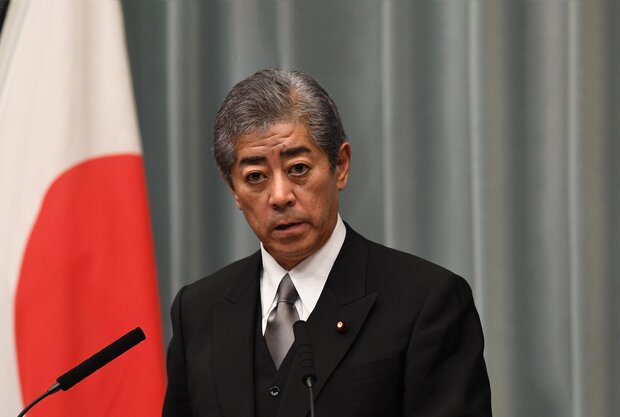In a telephone conversation with Acting US Defense Secretary Mark Esper, Takeshi Iwaya called on both sides to keep calm and restraint to prevent any further escalation of tensions in the region, following the US' provocative measures against the Islamic Republic, such as accusing Iran of attacking two oil tankers in the Sea of Oman in mid-June, which carried Japan crude.
On June 13, the Japanese-owned Kokuka Courageous and Norwegian-owned Front Altair oil tankers were struck by explosions near the strategic Strait of Hormuz. Japan’s government said both vessels were carrying “Japanese-related” cargo.
Shortly after the two tankers were hit by the explosions, US Secretary of State Mike Pompeo blamed Iran. A day later, US President Donald Trump made a similar claim. Neither offered any evidence, and the footage that was released was said by US officials to show Iranian personnel removing an “unexploded” mine.
Iran has rejected the allegations.
Experts have said the explosions could have been false flags to implicate Iran at the time of a historic visit by Japanese Prime Minister Shinzo Abe to Iran, a first of its kind in more than 40 years. Prime Minister Abe was meeting with Leader of the Islamic Revolution Ayatollah Seyyed Ali Khamenei when the explosions happened.
According to Kyodo, a source close to Prime Minister Abe also said that the footage did not prove an Iranian attack.
Separately, a Japanese Foreign Ministry source said the attack being sophisticated was no reason to blame Iran. Such a characteristic, according to the source, could also implicate the US and Israel — Iran’s main adversaries.
The Japanese operator of one of the tankers also said it had been hit by “a flying object,” not a mine.
MNA/IRN83370405
